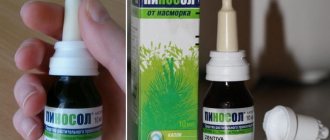Many women are convinced (and doctors support such beliefs) that the vast majority of diseases of viral etiology during pregnancy can be extremely dangerous for the embryo, and especially in the early stages of its development. So, in fact, measles, which affects pregnant women, can bring a lot of problems.
It must be said that thanks to modern vaccination practices, a disease such as measles is actually quite rare.
However, any expectant mother has certain risks of contracting this disease, for example, from her own older children, who were not able to get vaccinated at one time. So what should such pregnant women know about measles, which overtakes them during this difficult period of gestation?
- Firstly, measles suffered by a pregnant woman in the first trimester can quite often cause complex malformations of the embryo and even in some cases can be a real basis for a medical referral of a woman for an abortion.
- Secondly, it should be understood that the only effective way to prevent the development of measles is timely vaccination (measles vaccination), which, as you understand, should be done before pregnancy.
- Thirdly, you need to know that today, unfortunately, there are no medications (medicines, tablets or syrups) that could completely destroy the measles virus. Actually, therefore, women have only one thing left to do - try to promptly create the most optimal conditions for their body to fight this infection.
What is measles
Measles is an infection of viral etiology, characterized by a high degree of contagiousness. The causative agent of the infection is an RNA virus belonging to the paramyxovirus family. The main route of transmission is airborne; the source of infection is a sick person.
In childhood, according to the vaccination schedule, vaccination is carried out, which significantly reduces the risk of infection.
However, there have been cases where the body's immune system failed to cope with the outbreak of the disease, and those who received the vaccine became infected.
The pathogenesis of measles is represented by five phases:
- Phase 1 – infection enters the mucous membranes and the virus enters the lymph nodes.
- Phase 2 – penetration of the pathogen into the bloodstream. The phase is called “primary viremia.” The spread of the virus manifests itself clinically; lymphocytes of groups T and B, as well as anti-measles antibodies, are intensively formed.
- Phase 3 – secondary viremia. Against this background, the body’s immune reaction joins in the form of an allergic response.
- Phase 4 is the period of the acute process. The walls of blood vessels are damaged and swelling develops. The upper respiratory tract experiences an acute lack of blood supply, and tissue necrosis develops as a result.
- Phase 5 – recovery, and in the absence of treatment – severe damage to the central nervous system.
Each stage is characterized by a clinical picture. Starting from the second stage, rashes appear on the face. At 3, the rash covers the torso, and at 4, the rash covers the entire body.
A distinctive feature of the disease: photophobia and a papular rash that appears from top to bottom.
Infection of pregnant patients is strongly discouraged, as the main complications affect the baby’s health and threaten life.
The consequences of the pathological process can be unpredictable.
Clinical manifestation of the disease
A peculiarity of this disease during pregnancy is that in the first days of infection the body does not observe any special signs indicating the presence of measles. However, then, after one or two weeks, the disease begins to manifest itself.
During measles, a pregnant woman may experience the following symptoms:
- high temperature rises;
- headaches regularly;
- may cause a debilitating cough;
- nasal congestion occurs or mucus mixed with pus is released from it;
- an inflammatory process develops in the eyes and mouth;
- rashes can be seen on the body and face;
- Small white spots have formed in the oral cavity.
It is worth noting that the skin rash always first appears in the upper part of the body, and gradually spreads to the lower extremities. Then the affected areas begin to peel off and disappear over time. In this case, a woman may experience a lack of appetite and fatigue too quickly. The intestines malfunction, stools become loose and frequent. During this period, the expectant mother does not tolerate bright light well, her voice deepens and conjunctivitis may develop.
In addition to all the described signs, during measles a pregnant woman experiences sleep disturbances and may be bothered by insomnia. Sometimes painful cramps are felt in the abdominal area.
Attention! In order not to encounter possible complications and consequences in the future, you should be more attentive to the manifestation of the disease and immediately consult a doctor at the first symptoms.
How can you get measles while pregnant?
Infection with measles during pregnancy is a dangerous condition for both mother and baby.
You can only catch an infection from a sick person, and it is not necessary to have clinical symptoms. The incubation period lasts up to 14 days, and during this time the sick person exudes “bacillus”.
Infection of a pregnant woman is possible through prolonged close contact with a measles carrier, for example, during work. Or become infected during an outbreak of infection within a hospital, or in your region of residence.
The possibility of infection through food and household contact remains. The virus is extremely unstable to environmental conditions, so these mechanisms of infection have been proven only theoretically. In one way or another, the pathogen enters the external environment only through the airways.
If the girl has been vaccinated against the disease, the risk of infection is reduced significantly. Or the clinical signs, symptoms and course of the pathology are much easier.
Measles vaccination in adults
The full range of vaccinations that protect a person from measles consists of only two injections. Vaccination against this disease is done in early childhood - 12 months, the second dose is administered at five to six years. This is quite enough to make the human body invulnerable to the measles virus for life. Thus, subsequent revaccination is not necessary for adults. An exception is made for certain categories of the population at risk of contracting measles, namely medical workers and teachers.
If an adult was not vaccinated against measles as a child, he will be able to correct this when he is older. Two vaccinations will be required, at least one month apart.
Symptoms and diagnosis of the disease during pregnancy
The main symptom of measles is a red papular rash that merges with each other.
The entry points for infection are the respiratory organs (mouth, nose). And only after 10-14 days the first warning signs appear.
- Initially, acute photosensitivity and tearfulness appear. A pregnant woman cannot look at a bright light.
- The parotid lymph nodes are enlarged.
- On days 2-3 of the disease, a dry, intermittent cough and pain in the bronchi develop;
- The nose is stuffy, there is purulent discharge from the nostrils.
- From 5-7 days, hyperemic papules form. The rash begins in the area behind the ear, and a rash appears on the inner surface of the lips. Gradually the rash spreads from top to bottom.
The main signs of the pathology occur against the background of hyperthermia, general fatigue and intoxication of the pregnant woman.
Headaches, diarrhea and lack of appetite may occur.
Over time, the papules begin to peel off, and unbearable itching appears.
Diagnosis of pathology
Measles is not difficult to identify. The disease has specific symptoms. In addition, when registering for pregnancy and childbirth, in the absence of a history of the disease, a number of laboratory tests are performed to identify antibody titers.
An enzyme immunoassay allows you to identify the presence or absence of the pathogen, as well as find out whether the woman has been vaccinated and whether her body has encountered the disease.
Having had measles once, a lifelong, stable immunity to this pathogen is formed (as, for example, with chicken pox and rubella).
An antibody titer exceeding the permissible values by 4 times indicates the progression of the virus in the woman’s body.
Diagnostics
Due to the similarity in symptoms with the common cold, rubella and scarlet fever, it is not always easy to differentiate measles. Suspicion of the disease appears when a pregnant woman comes into contact with a patient. There should be pronounced clinical signs - typical rashes in the mouth and skin, and then a rash on the palate and pharynx. Accurate diagnosis of the disease includes a set of laboratory tests:
- Nasopharyngeal swab.
- Sputum smear.
- Blood analysis.
- Analysis of urine.
- Chest X-ray (extreme cases).
A routine blood test reveals the amount of antibodies that are resistant to infection. The presence of these indicates that the woman was once infected with the measles virus or was vaccinated against it.
As a rule, pathology has a special nature of manifestation, and sometimes its symptoms can be peculiar. Therefore, in determining the disease, specialists often do without additional tests, being guided by current symptoms. The clinical picture may be atypical and difficult to diagnose in vaccinated people, in which case a medical laboratory test is so necessary.
It is almost impossible to find out whether babies are infected before they are born. Diagnosis of the disease in them is carried out after childbirth.
Consequences of measles for pregnant women
Measles has terrible side effects that progress if left untreated.
The main complication occurs in the central nervous system. In the early stages, the disease is the reason for termination of pregnancy, because under the influence of the virus intrauterine pathologies incompatible with life develop.
Consequences for the expectant mother
The negative impact of the virus depends on the gestational age:
- Pregnancy that occurs against the background of an infectious measles process should be suspended for medical reasons. Infection of the fetus leads to severe disorders in the brain and pulmonary system. The probability of spontaneous abortion before 14 weeks is 95%.
- In the 1st trimester, pregnancy fading, detachment of a poorly secured baby place and miscarriage are noted. The gestation period does not exceed 12-14 weeks.
- In the 2nd trimester, a meeting of the pregnant body with a viral infection can lead to fetal fading or cause developmental delays. If the infection occurs during active organogenesis, then there is a possibility of underdevelopment of the organs or limbs of the fetus.
- 3rd trimester – development of premature birth, antenatal fetal death and difficult rehabilitation period of the newborn after birth.
Pregnant women with this diagnosis often undergo ultrasound examination and laboratory monitoring of pathology.
In addition, patients may experience infection in the meninges - encephalopathy is formed, which may not respond to treatment.
Complications for the fetus
Unfortunately, the poorly protected fetal body suffers more than the maternal one.
A child infected with measles during the prenatal period may develop:
- Dementia or mental retardation;
- Measles encephalitis;
- Bronchitis or pneumonia;
- Pyoderma;
- Meningitis.
Pathological processes are observed after the birth of the baby.
They worsen the postpartum recovery stage of the baby. Some pathologies lead to impaired pulmonary respiration, and children are transferred to mechanical ventilation.
Congenital pneumonia can be fatal.
When and to whom are vaccinations contraindicated?
The Russian-made measles vaccine is made on the basis of quail embryos, while foreign mixtures are based on chicken embryos. Individual intolerance to egg white of one type or another should be accompanied by a change in the manufacturer of the injections.
Measles vaccination when planning pregnancy is not administered if a woman:
- does not tolerate aminoglycoside antibiotics well;
- suffers from active tuberculosis;
- has malignant diseases, blood pathologies;
- has AIDS;
- has malignant tumors.
It is strongly recommended to refuse protection for people who have suffered severely from the previous anti-measles serum. Vaccination should be postponed in the following cases:
- Acute respiratory diseases. You need to wait for a complete recovery, restoration of the immune system while taking strong antibiotics.
- Exacerbation of chronic diseases. The recommended time of administration is remission.
- Risk of spontaneous abortion. The attending physician will suggest a more convenient time.
- Use of blood products. The injection should be postponed for 90 days.
- Taking corticosteroids. They are incompatible with measles vaccinations. After cancellation and completion of the course of treatment, you need to wait a month.
- Taking immunosuppressive pills. After completing therapy, wait 4-6 months.
Infection with the measles virus is not an indication for termination of pregnancy, but the risks of carrying a defective child increase. Your doctor's recommendations should be followed to minimize side effects.
In Russia the following drugs are used:
- French "Ruvax";
- American combined "MMR";
- Russian Mumps-measles;
- British "Priorix";
- LCV monovaccine.
Ruwax
The vaccine produced by Aventis Pasteur provides 100% protection and contains the Schwarz strain virus. Medical institutions have been using the substance since 1968. Compliance with technology allows the laboratory to produce a drug that meets Russian and international standards and requirements. Independent purchase is almost impossible, since Ruvax is not available in retail stores.
Monovaccine
A drug for one disease, the effectiveness is on par with combined mixtures. For comprehensive protection, the monovaccine is inconvenient, but is publicly available and inexpensive. Contains virus strain Leningrad-16, Moscow-5.
Combined
The timing of the administration of vaccines against three common diseases (measles, mumps, rubella) coincides, so combined mixtures are an alternative to mono-vaccines. They can be purchased exclusively independently or in paid clinics.
Mumps and measles
A mixture of viruses is produced by the Federal State Unitary Enterprise NPO Microgen. The manufacturing technology fully complies with WHO requirements. Most often recommended in clinics as a vaccine that has been proven over the years.
Priorix
Smithkline Beecham Biologicals produces mixtures of attenuated viruses. The drug gained popularity for its high efficiency, minimization of symptoms, and lack of complaints.
Treatment of illness during pregnancy
There is no cure for measles; treatment is symptomatic. To eliminate symptoms, treatment is carried out comprehensively, under the strict supervision of a doctor.
Pregnant women are subject to hospitalization in the infectious diseases department.
Treatment methods depend on the signs of pathology:
- Antibiotic therapy – for microbial pneumonia;
- Antiallergic drugs - to reduce the immune reaction;
- Antipyretics and painkillers, acceptable during the gestational period;
- Immunostimulating therapy and additional intake of vitamins C, A, B;
- Inhalations and rinsing of the pharynx and nose.
Bed rest, drinking regimen and diet are also required.










